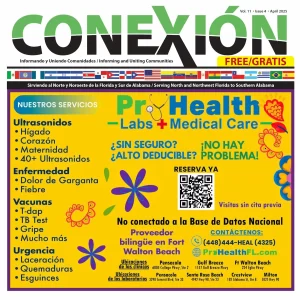Let’s Talk About Tourism March 2022
By Martin Owen
Tourism doesn’t just happen; it needs to be managed. If it isn’t managed, then you may get too many or too few visitors or guests that appear at the wrong time. I presume that some stakeholders in the business are happy for any travelers, providing they spend money, however that approach fails to maximize on the benefits of tourism to the local economy, the residents of the area and indeed to the visitors themselves.
A good example of this is Spring Break, a phenomenon that we are experiencing right now. Spring Break is an understandable event. Students of a certain age want to let off steam after a cold winter of studying and tend to flock to warm beaches to experience a period of freedom. At one time this annual event was welcomed by many resort areas, but the numbers of guests that arrived, in a relatively short period of time has put a strain on the local infrastructure. The activities of a minority of the breakers can lean towards anti-social behavior both in public and in the confines of their accommodations. Being young folks, the majority don’t have a lot to spend and consequently try to drive down rates in hotels and vacation rentals. They also tend not to spend much in the local economy, other than perhaps in clubs and bars.
How does a community manage this form of tourism? Obviously and inevitably the first reaction is to enforce local laws. This is carried out by the law enforcement agencies. The providers of accommodations try to balance the need for income with protecting their investment against damage. They attempt to block rentals to guests under 21 and restrict the numbers of occupants to each room or home. All this is a reaction to the already existing tourist patterns.
The tourism authorities – Visitor’s Bureaus, Tourist Boards etc., – let’s call them Destination Marketing Organizations or DMOs – can do much to modify tourist behavior. In an ideal world the DMOs would be starting from scratch with no existing guests. They would decide the type of visitors they want and from where they would come. IE would they be domestic tourists, overseas guests, families, seniors or adventure seeking visitors. They would then create campaigns to attract the right mix of tourist types, what’s known as the desired demographic. This could be looking for just a few high spending guests or instead looking for young families. Regrettably there are few cases of an ideal world. Tourist flows already exist, particularly here on the Northern Gulf Coast. People have been coming here for years. They tend to come from the same origin markets and engage in the same activities. So, the job of the DMOs is to attempt to modify the flow of guests.
They do this in many ways. Having first identified who is traveling to your area and what their spending patterns and behavior are currently, they then define who they really want. That may entail encouraging accommodations to keep their prices high during the spring break period. They work with those providers to ensure that occupancy of units is kept within the accepted levels. They then encourage the provision of activities that are not favored by spring breakers but are attractive to say, younger families. They may look to promoting the area to new markets. For example, rather than attracting breakers from within 250 miles of the area they instead work with airlines to bring in families from possibly northern states and cities who are looking to escape cold weather. These tourists will probably stay longer, spend more (particularly in restaurants), engage in activities like watersports and be more respectful to the local population. It’s not a change that takes place overnight but a process that has worked well for quite a number of resort areas.
Don’t get me wrong, Spring Breakers are great and many beach areas are more than happy to welcome them. But managing tourism is a different thing that just advertising. It involves deciding on your desired demographic and then actively encouraging them rather just letting things happen. How do you decide on your desired visitor? That’s for discussion next month.



